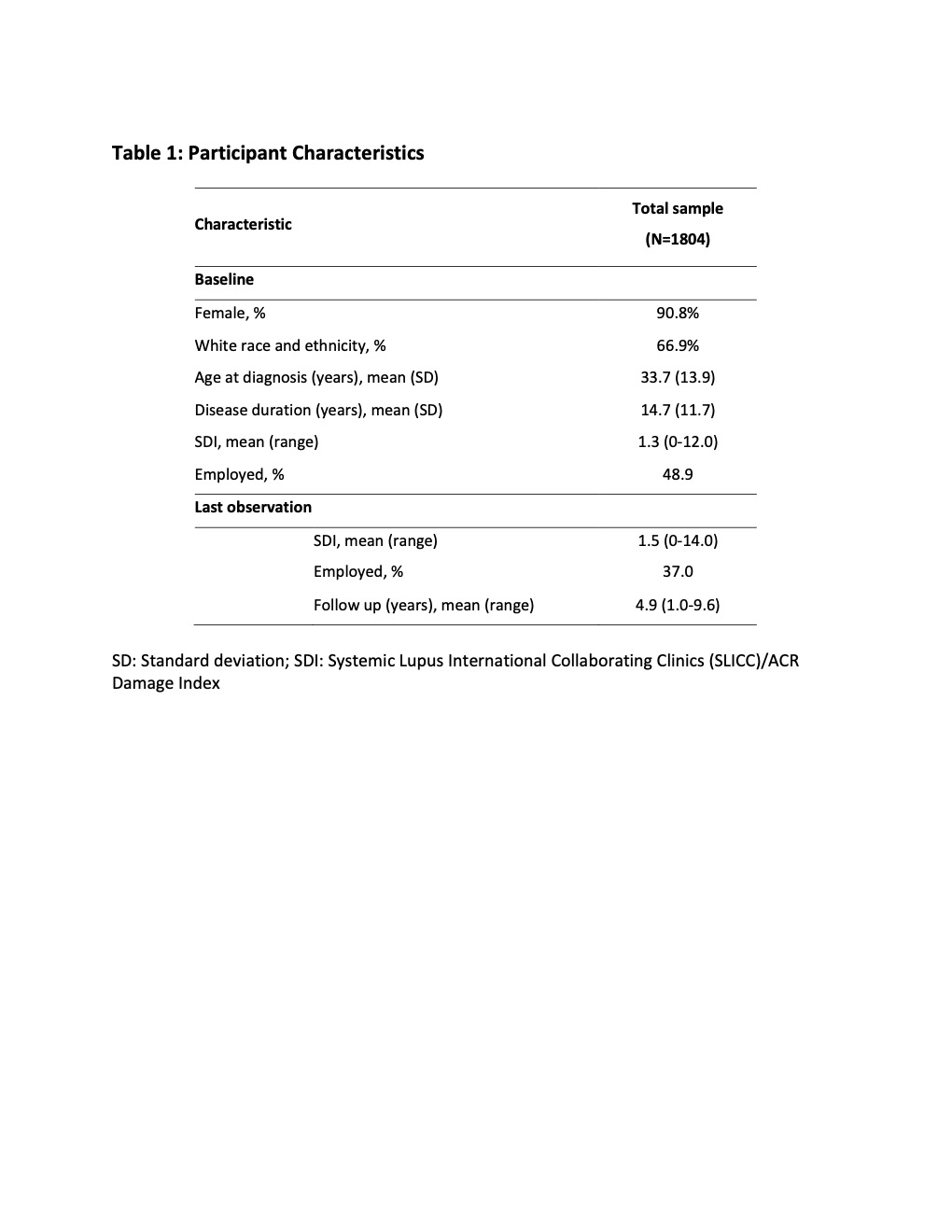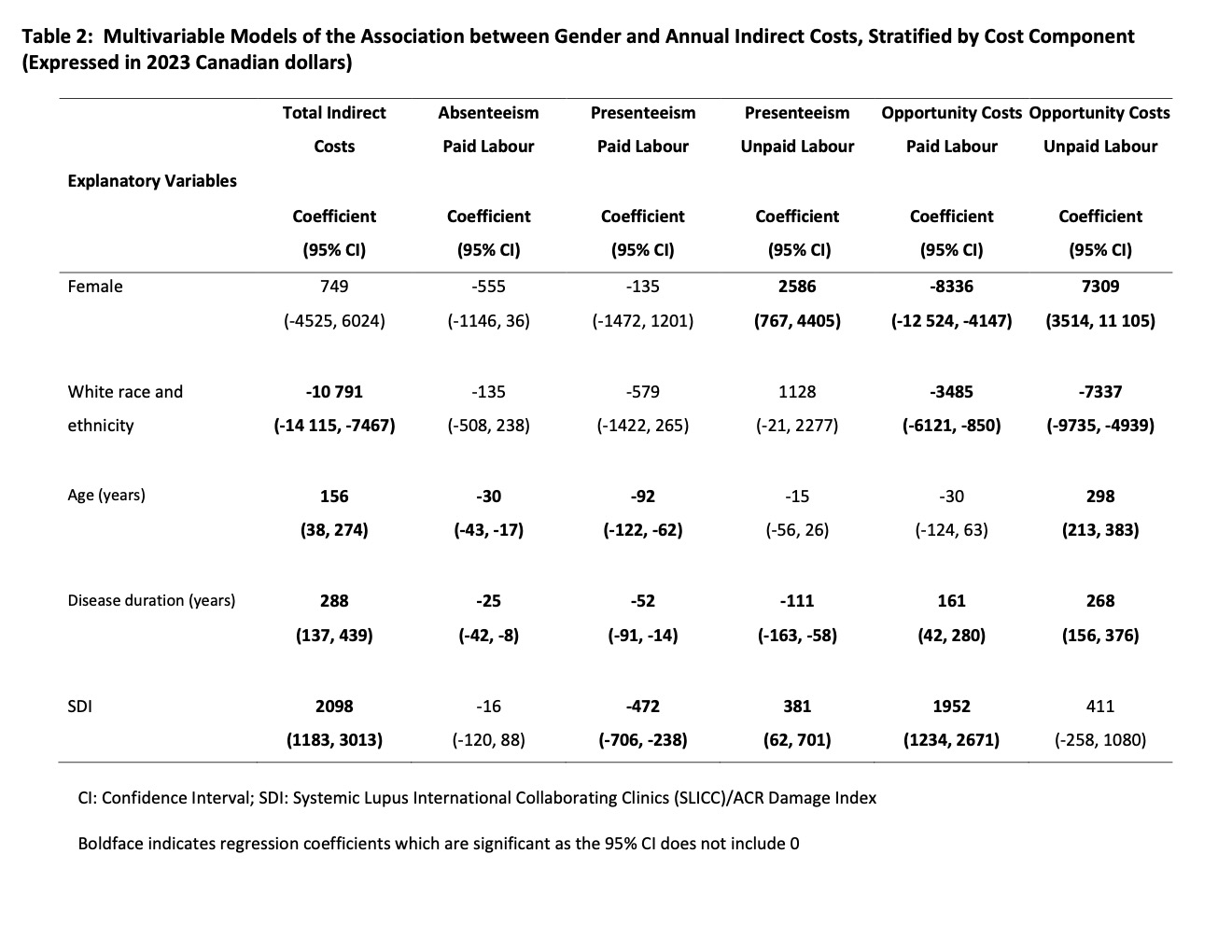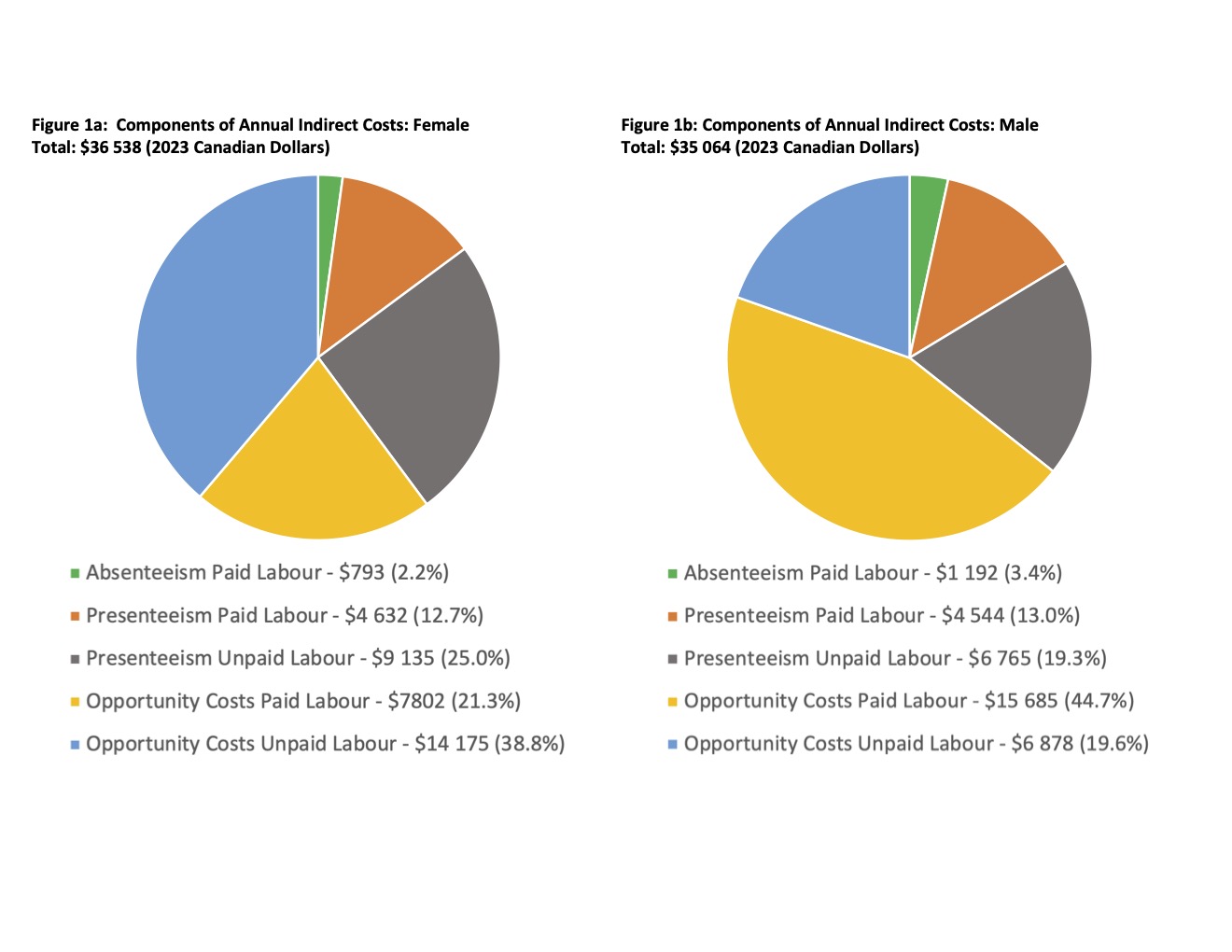Session Information
Date: Tuesday, November 19, 2024
Title: Abstracts: SLE – Diagnosis, Manifestations, & Outcomes III: Targets, Outcomes & Comorbidity
Session Type: Abstract Session
Session Time: 11:00AM-12:30PM
Background/Purpose: Economic analyses of SLE often include only direct healthcare costs. Indirect costs, particularly those attributable to lost productivity in unpaid labour, are often overlooked, which is especially relevant for a disease disproportionately affecting women. We assessed indirect costs due to lost productivity in both paid and unpaid labour, stratified by gender, in a national multi-centre SLE cohort.
Methods: Patients fulfilling the ACR or Systemic Lupus International Collaborating Clinics (SLICC) SLE Classification Criteria from 6 centres completed a validated questionnaire on lost productivity. Total indirect costs included: 1) absenteeism (time lost from paid labour because of illness), 2) presenteeism (degree of productivity impairment in paid/unpaid labour, based on a visual analogue scale), 3) opportunity costs (additional time patients would be working in paid/unpaid labour if not ill). Opportunity costs were calculated as the difference between the time patients reported working versus that worked by an age, sex, and geographic-matched general population in paid and unpaid labour. Indirect costs from paid and unpaid labour were valued using age-and-sex-specific wages from Statistics Canada. The association of gender with each of the components of annual indirect costs was assessed (adjusted for race/ethnicity, age, disease duration, and the SLICC/ACR Damage Index [SDI]) using random effects linear regression modelling, which allows for correlations for multiple observations per patient. Costs are expressed in 2023 Canadian dollars.
Results: 1804 patients participated, 90.8% female, 66.9% white, mean age at diagnosis 33.7 (SD 13.9) years, mean SLE duration 14.7 (11.7) years, and mean SDI 1.3 (range 0-12.0). Patients were followed a mean of 4.9 (range 1.0-9.6) years with 48.9% employed (49.5% among females, 44.0% among males) at the initial and 37.0% (37.1% among females, 36.7% among males) at the final observation (Table 1). Overall, total annual indirect costs were $36 405 (absenteeism: $829; presenteeism in paid labour: $4624; presenteeism in unpaid labour: $8922; opportunity costs in paid labour: $8512; opportunity costs in unpaid labour: $13 519). Among women, opportunity costs from unpaid labour were 38.8% ($14 175/$36 538) and from paid labour 21.3% ($7802/$36 538) of total indirect costs; among men, opportunity costs from unpaid labour were 19.6% ($6878/$35 064) and from paid labour 44.7% ($15 685/$35 064) of total indirect costs (Figure 1). Regression modelling showed that while women incurred higher opportunity costs from unpaid labour (coefficient $7309, 95%CI $3514, $11 105), they incurred lower opportunity costs from paid labour (coefficient -$8336, 95%CI -$12 524, -$4147) (Table 2).
Conclusion: Indirect costs in SLE, particularly resulting from unpaid labour, are substantial, especially in women, where they represent 38.8% of total indirect costs versus 19.6% in men. Hence, economic analyses weighing costs and benefits of novel/emerging therapies should incorporate costs resulting from lost productivity, including those in unpaid labour, which are of particular importance in diseases disproportionately affecting women.
To cite this abstract in AMA style:
Clarke A, St-Pierre Y, Barber M, Bernatsky S, Vinet E, Pineau C, Urowitz M, Gladman D, Peschken C, Hanly J, Legge A, Fortin P. The Forgotten Costs of SLE: Estimating Indirect Costs in a National SLE Cohort [abstract]. Arthritis Rheumatol. 2024; 76 (suppl 9). https://acrabstracts.org/abstract/the-forgotten-costs-of-sle-estimating-indirect-costs-in-a-national-sle-cohort/. Accessed .« Back to ACR Convergence 2024
ACR Meeting Abstracts - https://acrabstracts.org/abstract/the-forgotten-costs-of-sle-estimating-indirect-costs-in-a-national-sle-cohort/



